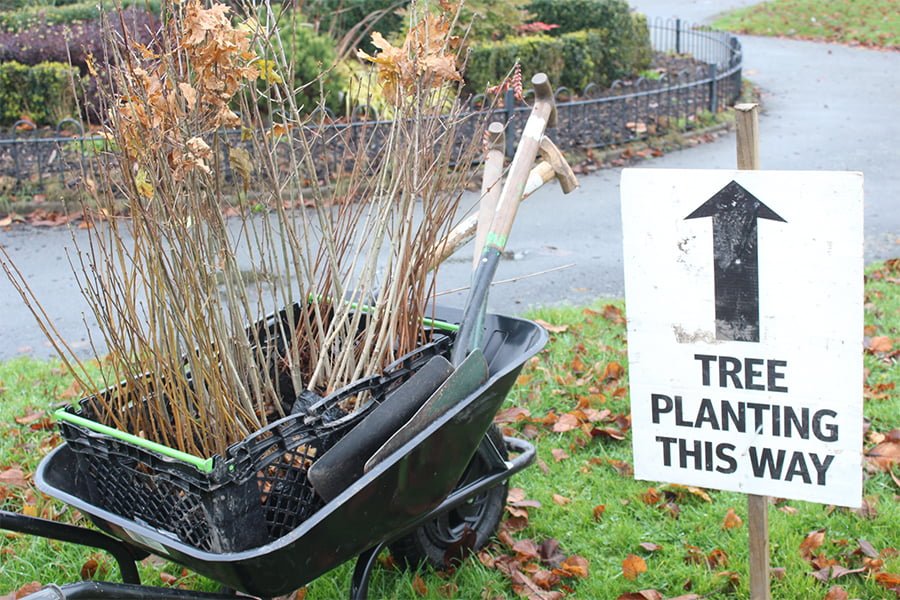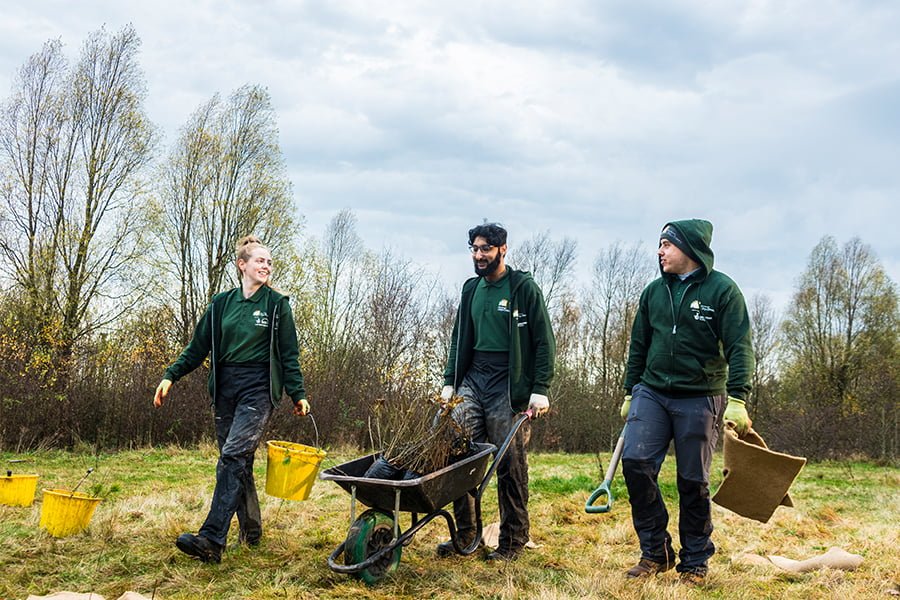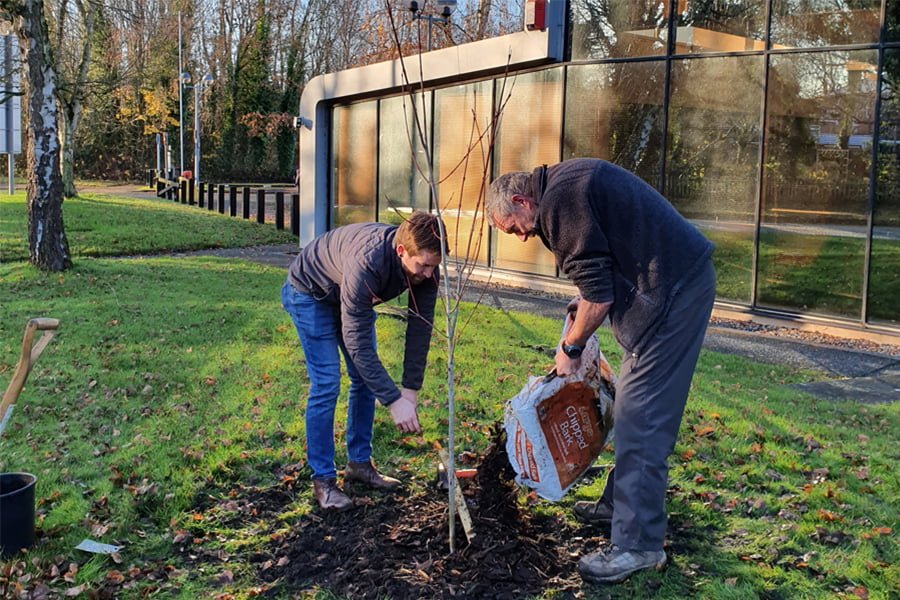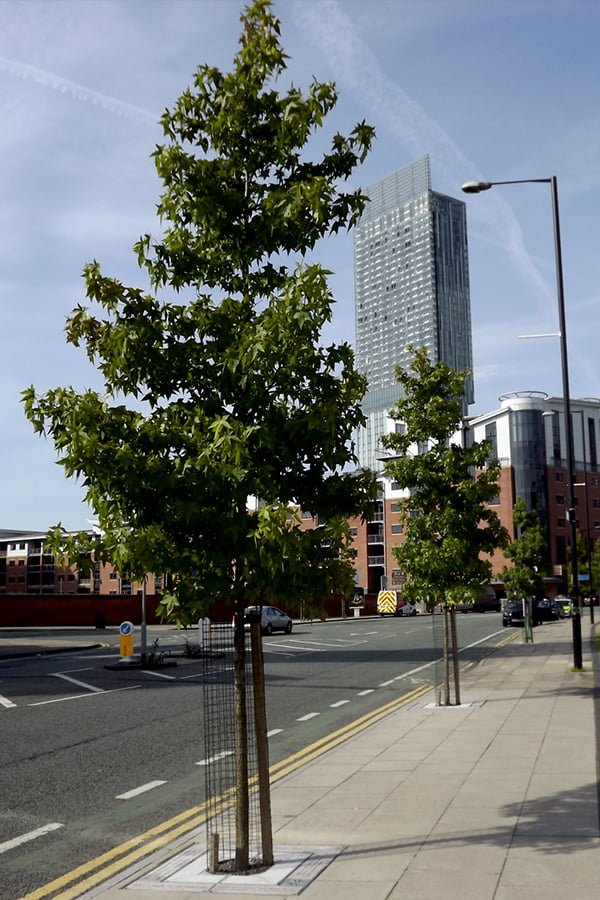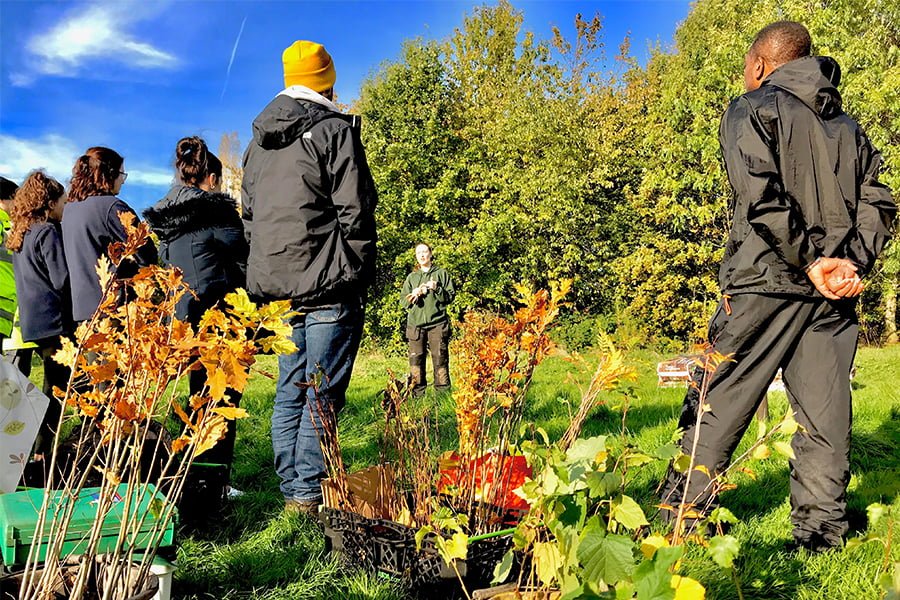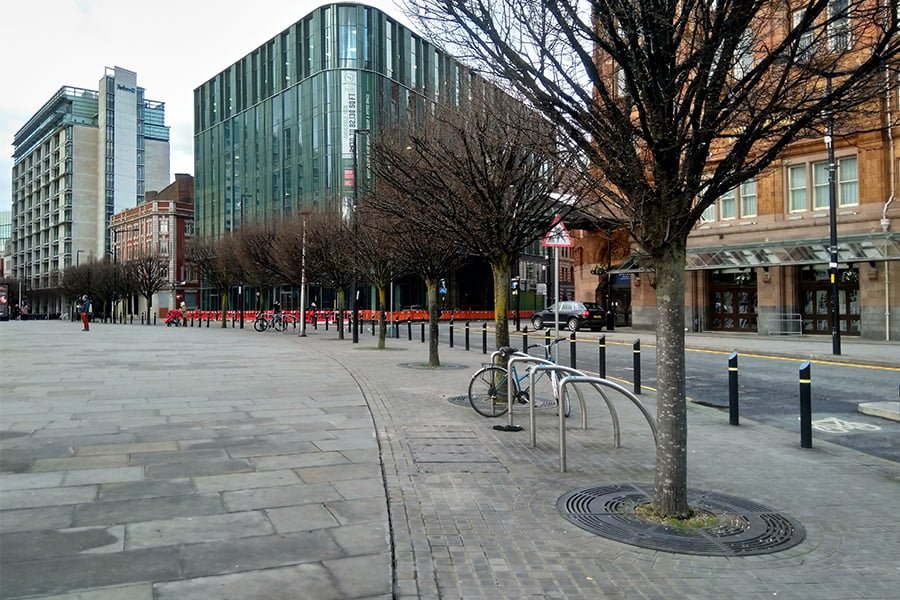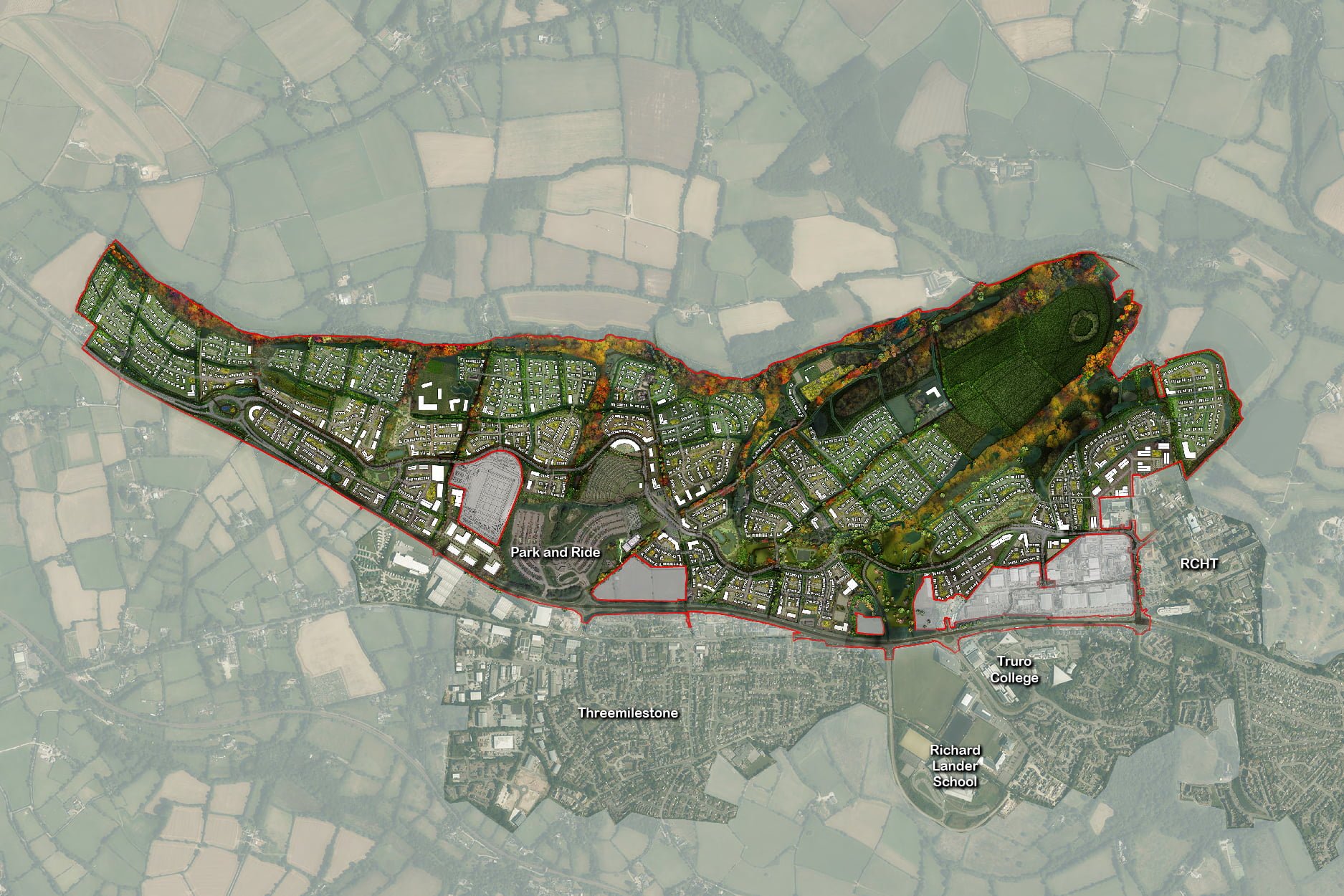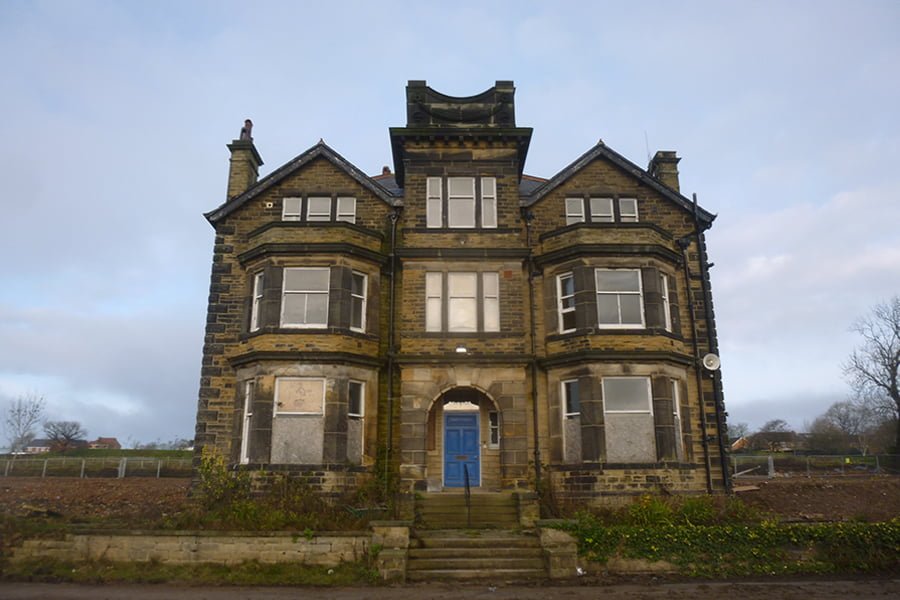It is estimated that Manchester’s trees cover about 20% of the City and deliver vital benefits to the people, economy and identity of the city; benefits which include improved air quality and opportunities for recreation and exercise. It is becoming increasingly apparent, that these benefits are needed now more than ever. However, Manchester’s trees face a range of challenges from pests and diseases to climate change. Therefore, appropriate tree management is crucial for maintaining and increasing their value.
Manchester City Council already has a good track record for tree management, working with partners in the community, and developing ambitious plans for the future. The Manchester Tree Action Plan sets out the council’s objectives and a plan for getting the most from its trees; All Our Trees is a shared strategy for trees and woodland across all of Greater Manchester. However, the distribution and type of trees vary significantly throughout the city, with some areas having large parks and woodland, and others, such as the city centre, containing relatively few trees. The city council is now asking: ‘Do we have the trees we need and are we managing them in the right way?’
To help build a better understanding of the city’s treescape and to plan for the future, Manchester City Council has teamed up with The Environment Partnership (TEP) and Manchester City of Trees. We will be working in partnership to advise the council, listen to the communities, and to develop some of the tools that will be needed to deliver a high-quality environment in the future.
The project has four main strands:
- Understanding the evolution of Manchester’s treescape – In collaboration with three post-graduate students from Salford University, we will undertake a new piece of research looking back at the composition of the City’s trees since 1900. This work will map the changing treescape using historic records, and consider how milestone events such as ‘Plant a Tree in 73’ and the establishment of the Red Rose Forest in 1991 have contributed to trends in tree cover. Understanding the modern history of the urban forest is important to establish context and identify effective approaches to future management.
- A Plan for Tree Management – We will be asking whether Manchester’s trees and woodland are as good as they could be; where areas of strength and weakness are; and how resilient the tree population and management approach is to emerging challenges. We will also be evaluating whether the current tree management approach is ready for the increase in tree cover. As well as that, we will be paying particular attention to the role of woodland within Manchester’s tree management and investigating sustainable ways to get the best value from this community asset.
- A Tree Planting Strategy – By combining tree survey data, digital mapping and modern mapping techniques, we will create a detailed map of Manchester’s existing trees, identifying the capacity for new planting and areas of particular need. Using this data, we will produce realistic tree planting objectives for each ward, with a detailed breakdown of where new trees should be planted to contribute to overall targets for the city.
- Launching the Beacon Trees project – Beacon Trees are those that play a special role in the identity and quality of a place and are particularly important to local people. They are usually in visible and prominent locations; and may be linked to stories, memories or events. As part of a new tree planting initiative to increase the number of Beacon Trees, we want the public to identify suitable locations. We are creating an interactive map that can be used to suggest and vote on locations for new public trees. These locations will then be reviewed and a planting strategy for next year will be developed.
Managing trees takes time and money and it is important to ensure that current practices and resources are fit for purpose. However, a well-planned and vibrant treescape can be transformative and deliver huge benefits to the city. TEP is proud to be carrying out this vital work to help address the climate crisis and ensure that the city remains liveable, green and healthy for future generations.


